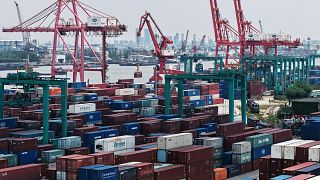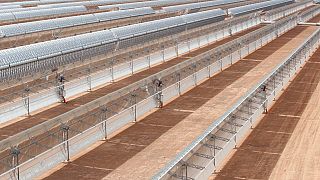Africa
The International Monetary Fund (IMF) has cut sub-Sahara Africa’s (SSA) economic outlook for 2016 as the region reels from multiple shocks of low commodity prices, Ebola virus outbreak and drought.
In its latest economic outlook report for the region, the Fund says growth is expected to fall to 3 percent in 2016, the lowest level in 15 years.
IMF has called for policy reforms across the region to ensure economic growth in the medium to the long term.
“Africa needs a substantial policy reset to reap the region’s strong potential. This is particularly urgent in commodity exporters and some market access countries, as the policy response to date has generally been insufficient,” said Antoinette Sayeh, Director of the IMF’s African Department.
Weakening Growth in sub-Saharan #Africa Calls for Policy Reset. Read the story! https://t.co/akyrM2MwnX pic.twitter.com/I6apGNst3U
— IMF (@IMFNews) May 3, 2016
The fund singled out Africa’s biggest economies Nigeria and South Africa which are also currently among the weakest, citing economic turbulence.
South Africa’s economy will expand by 0.6 per cent this year, while Nigeria’s growth is expected to be 2.3 per cent, according to the IMF.
The fund says that Guinea, Liberia, and Sierra Leone were only gradually recovering from the Ebola epidemic, while several southern and eastern African countries including Ethiopia, Malawi and Zimbabwe are suffering from a severe drought.
Despite the gloom, the IMF says that economic outlook in the region remains favourable. Ivory Coast, Kenya and Senegal could register growth in excess of 5 percent supported by ongoing infrastructure investment efforts and strong private consumption.
The IMF says that an improved business environment and favorable demographics will also play a supportive role in these economies in the long term.
IMF, Reuters














Go to video
Paraguayan town celebrates vibrant Kamba Ra'anga festival with masks, fire and tradition
01:47
Chinese city of Xuchang is world's biggest producer of wigs
01:15
U.S. considers adding more African countries to travel ban
01:03
Ethiopia to post faster growth despite debt, inflation
01:00
Renewed calls to end plastic pollution on World Environment Day
00:52
Bill Gates says most of his $200 billion fortune will go to Africa over next 20 years